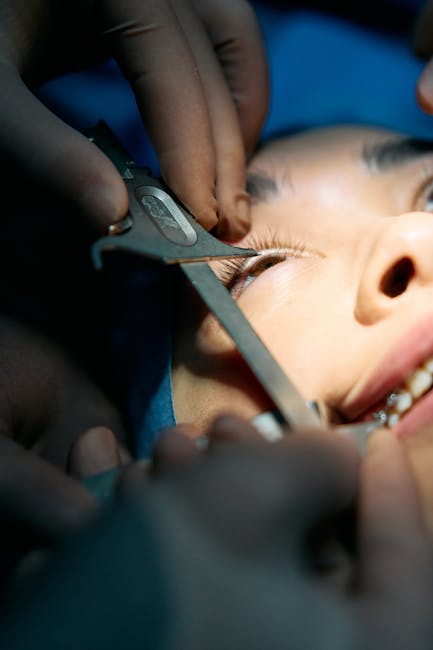LASIK Eye Surgery and Suicide: Separating Fact from Fiction and Understanding the Mental Health Connection
The internet is a vast landscape of information, and sometimes, that information can be misleading or even harmful. A recent surge in searches linking LASIK eye surgery and suicide has prompted a crucial conversation about the relationship between elective procedures, mental health, and the importance of responsible reporting.
While there’s no direct causal link between LASIK eye surgery and suicide, exploring the potential connection requires a nuanced understanding of several factors. This article aims to separate fact from fiction, addressing common misconceptions while highlighting the importance of pre-operative mental health assessments and post-operative support.
Understanding the Misinformation
The alarming association between LASIK and suicide often stems from isolated cases, anecdotal evidence, and the amplification of negative experiences online. This creates a distorted perception of risk, overshadowing the overwhelmingly positive outcomes experienced by millions who undergo the procedure. It’s vital to recognize that correlation does not equal causation.

Many websites and forums contain unsubstantiated claims, potentially exaggerating the risks and neglecting the crucial context of individual circumstances. Pre-existing mental health conditions, unrealistic expectations, and inadequate post-operative care can all contribute to negative outcomes, but these are not inherent consequences of the surgery itself.
The Role of Social Media and Online Forums
Social media platforms and online forums can be breeding grounds for misinformation. Negative experiences, often amplified by confirmation bias, can disproportionately influence perceptions. It’s important to critically evaluate the sources of information found online and to consult with reputable medical professionals for accurate guidance.
The Psychological Impact of Elective Surgery
Undergoing any elective surgery, including LASIK, involves a degree of psychological stress. The anticipation, the procedure itself, and the recovery period can all contribute to anxiety and emotional distress. These feelings are normal and often temporary, but understanding this psychological impact is crucial.

For individuals with pre-existing mental health conditions, the stress of surgery can exacerbate existing symptoms. This underscores the importance of open communication between patients and their ophthalmologists and mental health professionals.
Realistic Expectations and Informed Consent
Unrealistic expectations about the outcome of LASIK surgery can contribute to post-operative disappointment and frustration. It’s essential for patients to have realistic expectations, fully understanding the potential risks, benefits, and limitations of the procedure. Informed consent is crucial, ensuring patients are fully aware of what to expect.
- Proper Pre-operative Counseling: A thorough discussion of expectations, potential complications, and recovery timelines is vital.
- Open Communication with Surgeons: Patients should feel comfortable expressing any concerns or anxieties they may have.
- Realistic Goal Setting: Focus should be on improving vision, not achieving perfect 20/20 vision in every scenario.
Pre-operative Mental Health Screening
To mitigate the potential for negative psychological outcomes, some ophthalmologists are advocating for more comprehensive pre-operative mental health screenings. These screenings would help identify individuals at higher risk of experiencing significant emotional distress following the procedure.
While not yet a standard practice everywhere, the increasing recognition of the link between mental health and surgical outcomes is pushing for better assessment and support systems.
Addressing Pre-existing Conditions
Patients with pre-existing mental health conditions, such as anxiety or depression, should discuss their condition with their ophthalmologist and mental health professional *before* considering LASIK surgery. A collaborative approach ensures that any potential risks are carefully considered and addressed.
Post-Operative Support and Care
Post-operative care is just as crucial as the surgery itself. Providing adequate support to patients during recovery can significantly impact their emotional well-being. This includes:

- Regular Follow-up Appointments: Allowing for monitoring of both physical and psychological well-being.
- Access to Support Groups: Connecting patients with others who have undergone the procedure can alleviate feelings of isolation.
- Clear Communication Channels: Ensuring easy access to the surgical team to address any concerns or complications.
- Mental Health Resources: Providing patients with information about available mental health support services.
Separating Fact from Fiction: A Balanced Perspective
The association between LASIK and suicide is largely based on anecdotal evidence and misinformation. While the surgery can cause stress and anxiety, it does not directly cause suicidal ideation. Pre-existing mental health conditions, unrealistic expectations, and inadequate post-operative care are more likely contributing factors to negative outcomes.
Responsible reporting and accurate information are crucial to avoid perpetuating harmful stereotypes. Focusing on proactive mental health assessments, transparent communication, and comprehensive post-operative support will significantly contribute to ensuring the safety and well-being of patients undergoing LASIK surgery.
Conclusion: Prioritizing Mental Health
The focus should always be on prioritizing mental health before, during, and after any elective procedure. Open communication, realistic expectations, and comprehensive support systems are essential to ensuring positive outcomes for all patients. By separating fact from fiction and addressing the complexities of mental health in the context of LASIK surgery, we can create a more informed and supportive environment for those considering this life-altering procedure.

